Katrina by the numbers: A snapshot of calamity, despair and some hope
Ten years ago, the storm came, the levees broke and the city of New Orleans plunged into chaos and despair. The numbers below paint a snapshot of one of the most calamitous episodes in U.S. history.
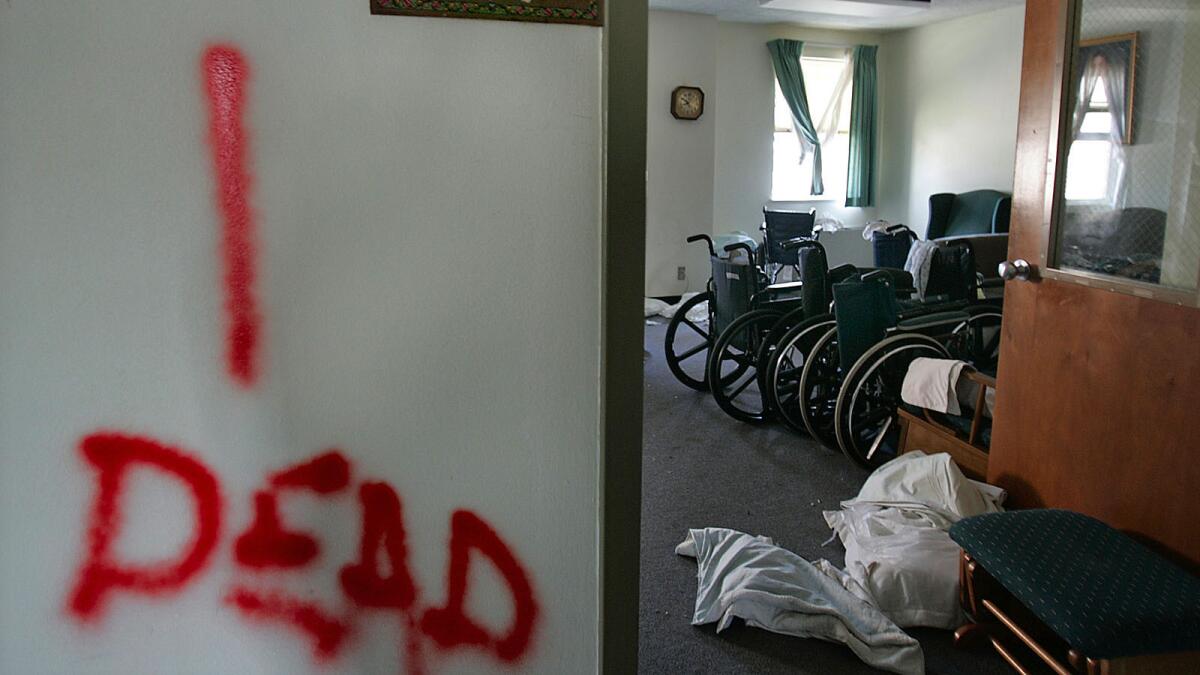
The Lafon Nursing Home of the Holy Family in New Orleans was the scene of 19 deaths. Many of the city’s dead “were the poorer and older people,” Coroner Frank Minyard said.
The Lafon Nursing Home of the Holy Family in New Orleans was the scene of 19 deaths. (Robert Gauthier / Los Angeles Times)
1,833
Number of deaths attributed to Hurricane Katrina, according to the U.S. Census Bureau. Many of the dead "were the poorer and older people," New Orleans Coroner Frank Minyard said at the time.
Thousands of cars were ruined and abandoned in the hurricane. This stack in the outskirts of New Orleans was still there more than eight months later. (Carolyn Cole / Los Angeles Times)
$151 billion
Estimated damage caused by Katrina, according to the U.S. Census Bureau.
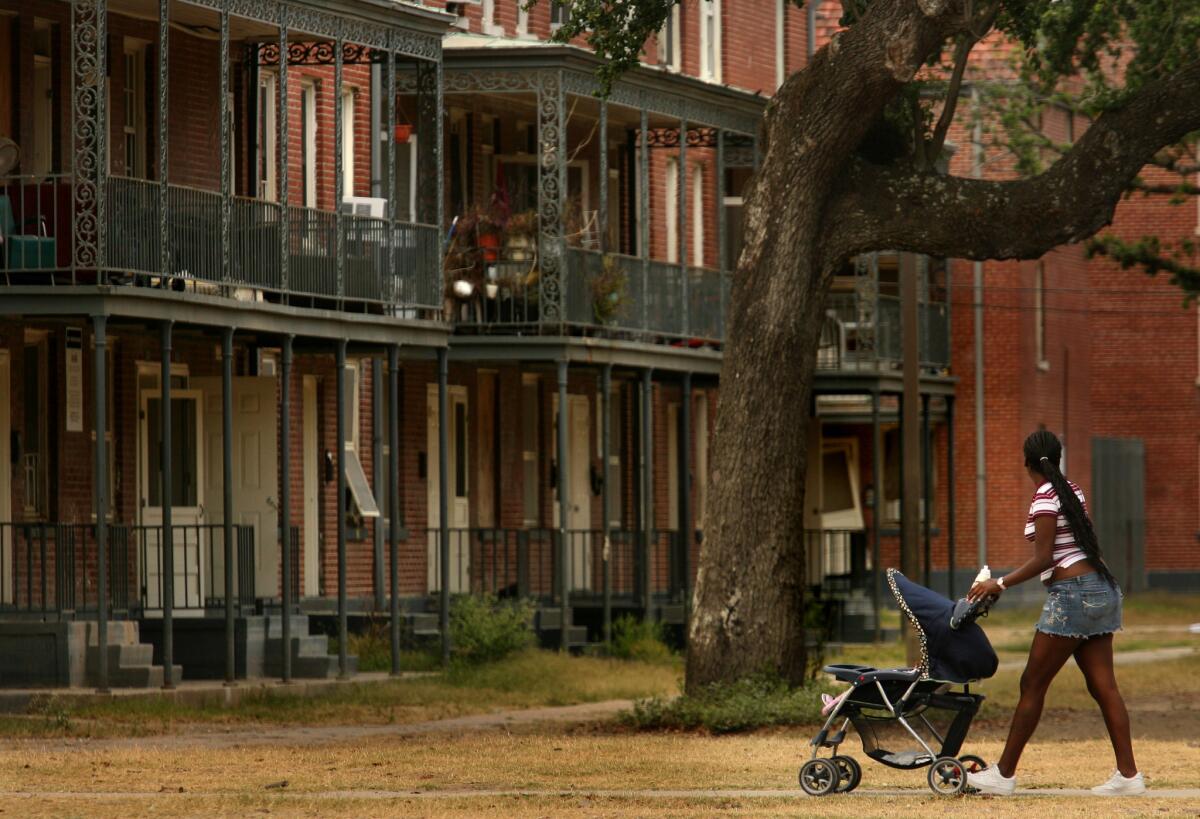
Cole, Carolyn –– – 110187.MN.0422.housing.1.CMC...NEW ORLEANS, LA––At the Iberville Housing Project in downtown New Orleans, very few residents have been allowed to move back in. Some of the residents believe that the city is not allowing families to return in hopes that the project can be torn down. Only a few dozen units now have power, water, and gas.
New Orleans’ Iberville housing projects. (Carolyn Cole / Los Angeles Times)
53%
Decrease of New Orleans population from July 2005 to July 2006. Last year, New Orleans regained a spot in the nation’s top 50 most populous cities for the first time since Hurricane Katrina.
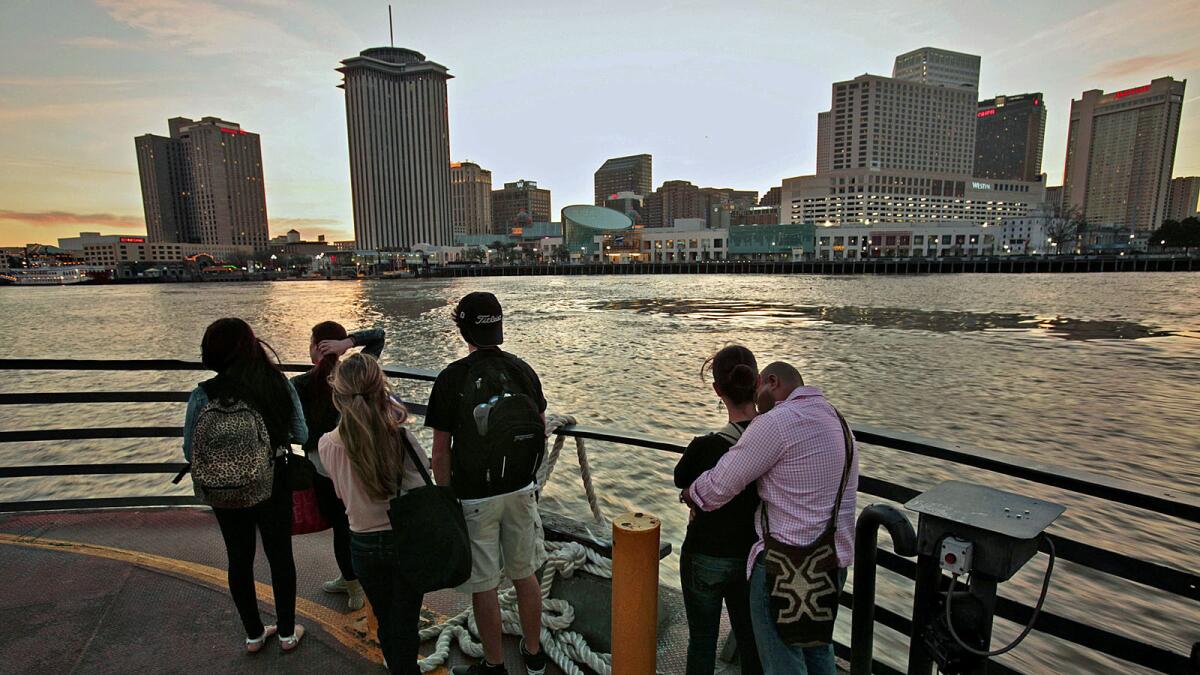
From Algiers Point, people gaze across the Mississippi River at the New Orleans skyline.
From Algiers Point, gazing at the New Orleans skyline in 2012. (Carolyn Cole / Los Angeles Times)
23%
Percentage of current New Orleans residents who moved there after Hurricane Katrina, according to a report by LSU’s Public Policy Research Lab.
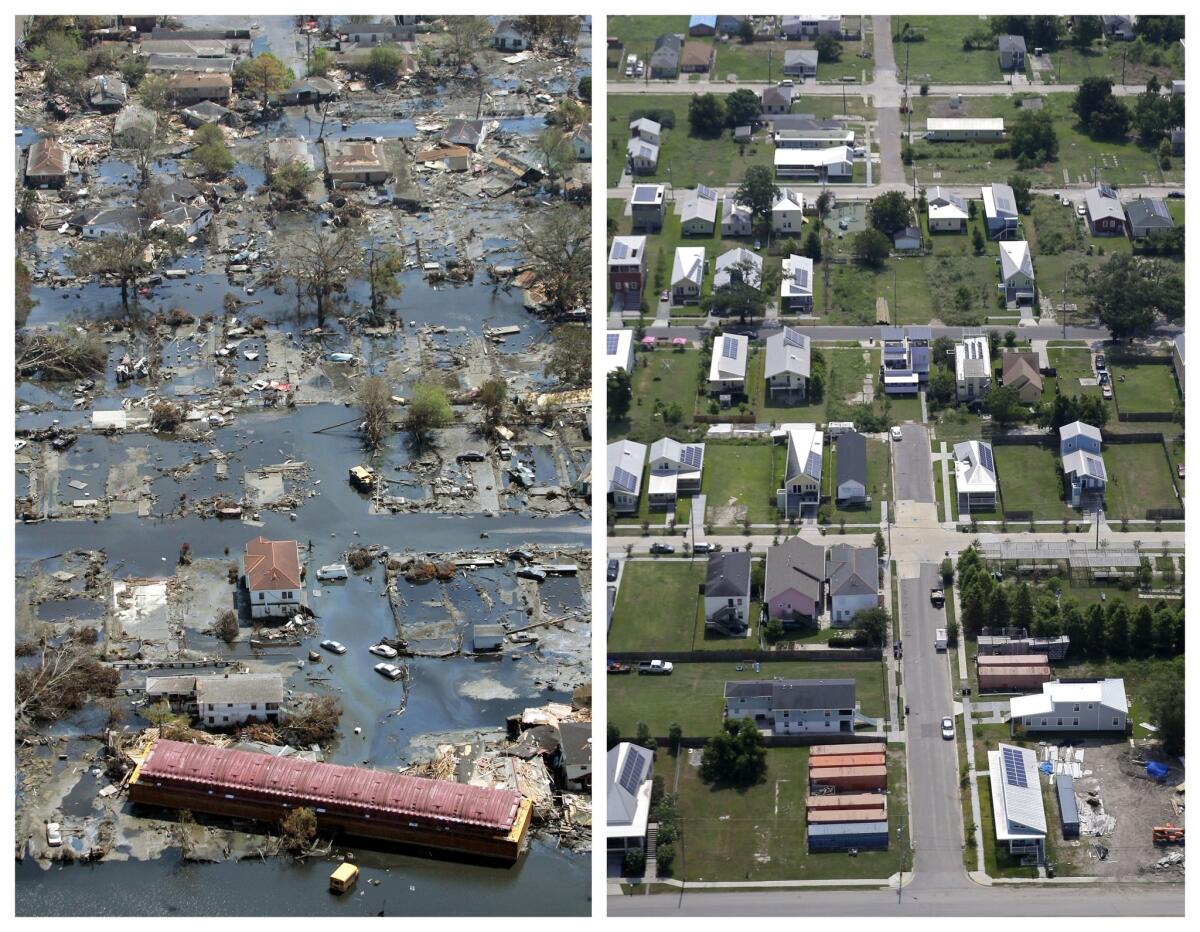
This combination of Sept. 11, 2005 and July 29, 2015 aerial photos show the Lower Ninth Ward of New Orleans flooded by Hurricane Katrina and the same area a decade later. Before Katrina, the Lower Ninth Ward was a working-class and predominantly African-American neighborhood just outside the city’s historic center. (AP Photo/David J. Phillip, Gerald Herbert)
Hard-hit Lower Ninth Ward in September 2005, left, and July 2015. (Associated Press)
59%
Percentage of black residents who say Louisiana has “mostly not recovered.” By contrast, 78% of white residents say the state has "mostly recovered," according to LSU’s Public Policy Research Lab.
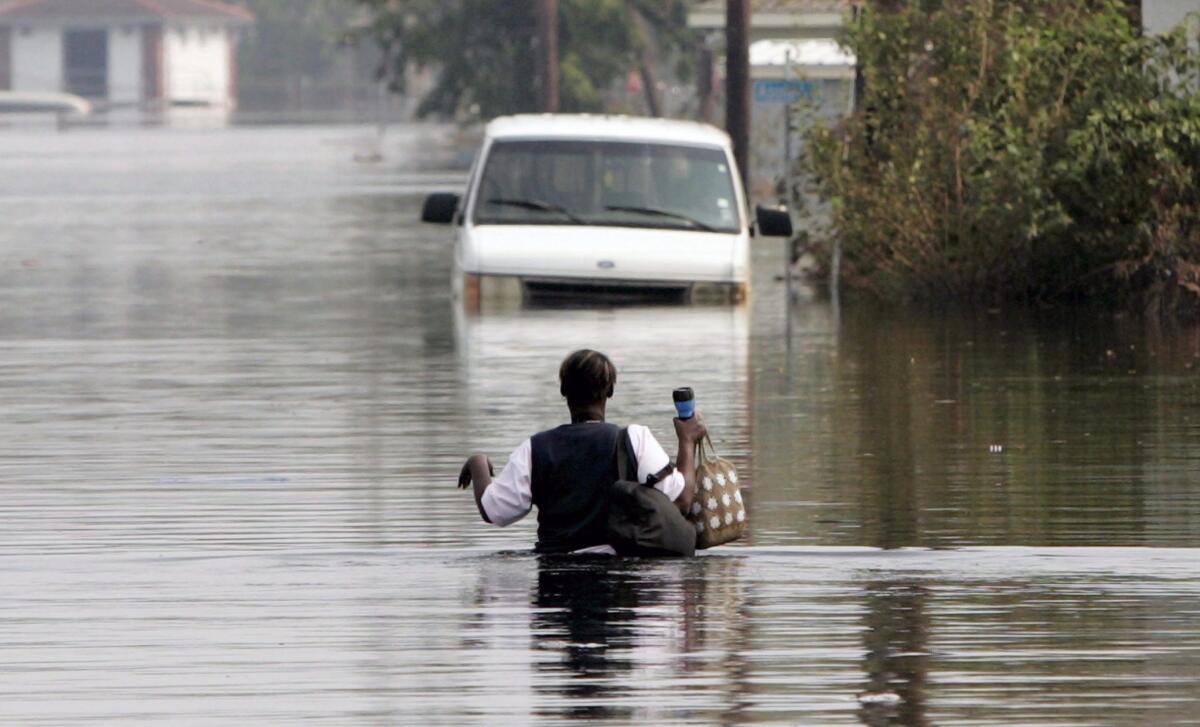
epa04899230 (FILE) A file picture dated 05 September 2005 of a woman returning to her flooded neighbourhood on foot after rescuers had taken her earlier by boat to look for her family in New Orleans, Louisiana, USA. Hurricane Katrina made landfall in Louisiana on 29 August 2005 and devastated New Orleans when the city’s levee system failed. More than 1,800 people were killed and some 1.3 million people on the US Gulf Coast lost their homes and livelihoods. It caused an estimated 81 billion US dollars worth of damage, making it the costliest natural disaster the country has ever seen. EPA/SHAWN THEW ** Usable by LA, CT and MoD ONLY **
A woman returns to her New Orleans neighborhood by foot. (European Pressphoto Agency)
80%
Percentage of New Orleans that was filled with water at the height of the flooding, according to a White House report. The water was up to 20 feet deep.
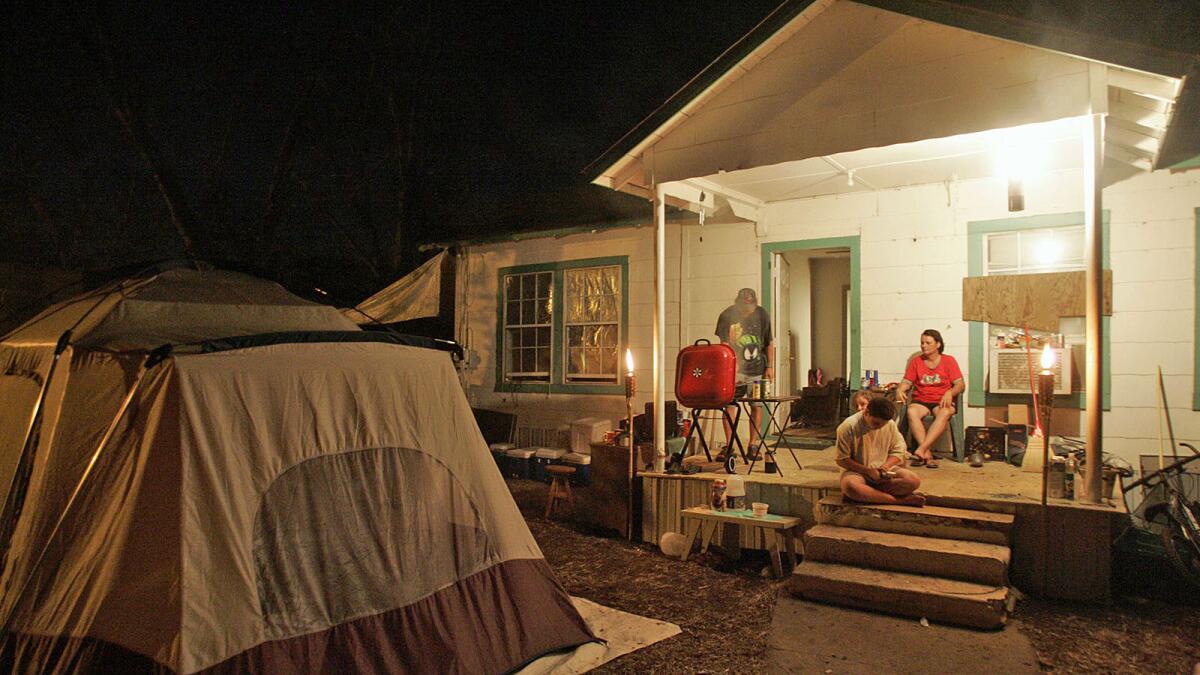
The Zirlotts have been eating their meals on their home’s front porch and sleeping in a tent since Hurricane Katrina struck two weeks ago. Their home needs to dry out before it can be reoccupied.
A family in Alabama uses a lantern and tiki torches for light as they wait for electricity. (Genaro Molina / Los Angeles Times)
2.5 million
Customers who reported power outages in Alabama, Louisiana and Mississippi, according to the White House report. The Department of Energy said there was “unprecedented damage.”
Sign up for Essential California
The most important California stories and recommendations in your inbox every morning.
You may occasionally receive promotional content from the Los Angeles Times.










